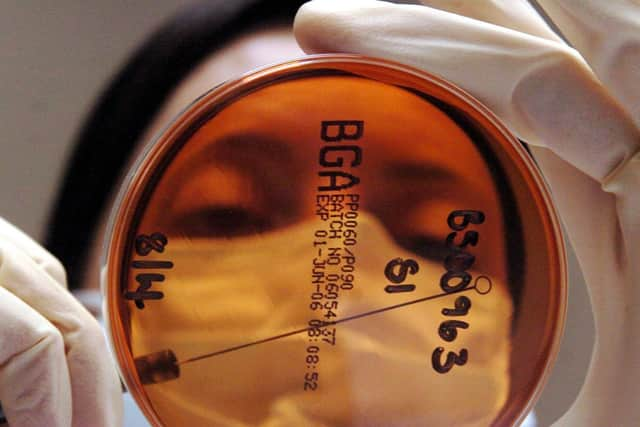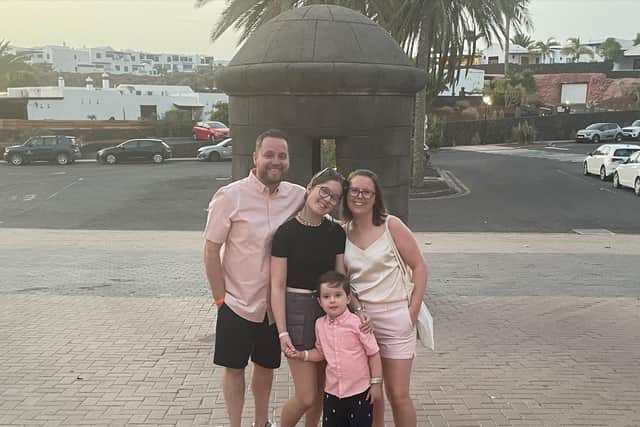GPs bypassed in new Scottish pilot to speed up cancer diagnosis


A Cancer Research UK-funded scheme - designed to tackle Scotland’s record long waiting times for cancer diagnosis - has been launched.
One of the Test, Evidence, Transition (TET) pilot schemes, which aim to “free up GP time, improve the patient experience and prevent delays in diagnosis, will take place in NHS Forth Valley.
Advertisement
Hide AdAdvertisement
Hide AdPatients who contact their GP after finding a lump in their breast will be referred directly to a breast assessment clinic, without the need for an initial GP appointment and subsequent wait for a referral appointment.


Juliette Murray, NHS Forth Valley’s deputy medical director for Acute Services and Breast Surgeon, said: “We already run one-stop breast clinics which enable patients referred by their GP to have an outpatient consultation, mammogram and ultrasound scans performed during the same visit along with a biopsy, if required.
“Enabling GPs to refer directly to these clinics without the need for patients to attend their GP Practice for an initial consultation will make the referral process even faster.
“It will also ensure women who find lumps or experience changes in their breasts are seen as quickly as possible and, in many cases, reassured that they do not have cancer.”
Cancer patient Samantha Currie, 42, from Menstrie in Stirlingshire, is now in remission after being diagnosed quickly following a phonecall to her GP and a immediate referral to Forth Valley Royal Hospital.


Within two weeks she was told she had triple negative breast cancer that had spread to her lymph nodes, before undergoing months of treatment including chemotherapy every three weeks, surgery and radiotherapy.
“My cancer was diagnosed quickly after speaking to my GP,” said Ms Currie.
“Anything that speeds up diagnosis and access to treatment is welcome as getting treatment quickly improves your chances of beating the disease.”
Advertisement
Hide AdAdvertisement
Hide AdMs Currie is now back at work and enjoying life with husband John and children Emma, 14, and Tom, four.
Meanwhile, in NHS Fife, a similar TET initiative will see advanced specialist nurses leading the diagnostic process for those with prostate cancer symptoms, to allow consultants to focus on more complex cases.
Once patients are referred to the specialist team, they will then be in the care of a dedicated nurse-led team and patient navigators who will assess patients, arrange scans, book biopsies and refer patients quickly to a cancer care team for treatment where necessary.
Jane Thomson, an advanced clinical nurse specialist in urology at NHS Fife, said: “In Fife, we identified an opportunity to reduce delays from referral to diagnosis for people referred urgently with suspected prostate cancer.
“The development of a new advanced clinical nurse specialist rapid access diagnostic clinic for people with an urgent suspected prostate cancer has the potential to allow quicker access to diagnostic appointments, diagnostic tests, as well as earlier treatment decisions and management.”
TET has received Cancer Research UK funding of £900,000 for pilots in the first year, including these two in Scotland, with each project working in conjunction with local NHS teams to find new ways to improve both patient experience and cancer outcomes.
Comments
Want to join the conversation? Please or to comment on this article.